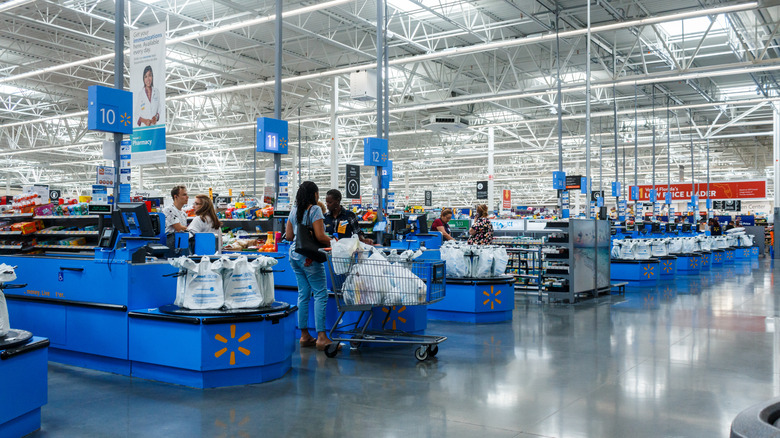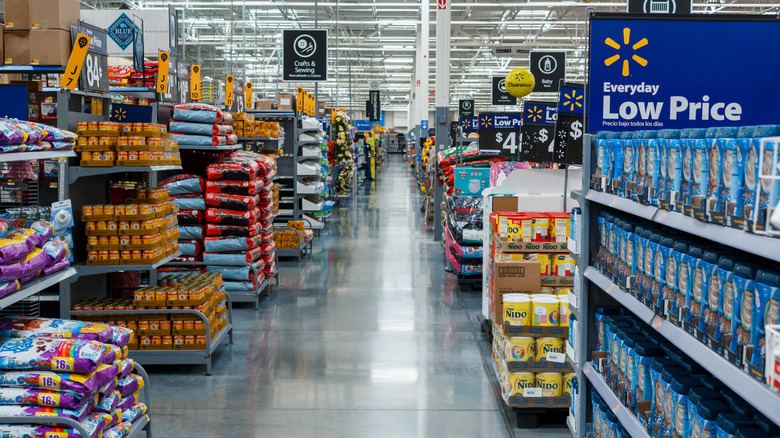Walmart Beats Out Amazon On Grocery Net Sales
Walmart and Amazon are two retailers that are favorites among consumer packaged goods (CPG) companies. Both compete as one-stop shops for items as varied as frozen meals, soft drinks, and household supplies. Notably, this rivalry goes far beyond grocery products, even extending into technology, with Walmart building out Walmart Plus in recent years, which is essentially its own version of Amazon Prime (via Argos Software).
Even with this recent development, Amazon appeared to be topping Walmart in terms of business earlier this year. Back in July, it was reported that Amazon's online sales, which were responsible for over half of all online sales in the United States, had crushed Walmart's online sales in Q1 (via PYMNTS). This major feat was completed through a combination of factors — including the addition of Amazon's new Subscribe and Save incentive and grocery delivery initiative. But in the last few months of the year, research actually points to the fact that the Arkansas-based retail giant has more support from customers than its online competitor (via Jungle Scout).
Many people prefer Walmart's in-person selection
Data collected by Jungle Scout shows that customers found that product prices, product familiarity, and return policies were more favorable at Walmart. Furthermore, the retail giant outranked Amazon in terms of its cleaning supplies, supplements, and alcohol. These may be just a few of the reasons why Walmart's reported net earnings of $151.4 billion are higher than those of Amazon's, a reported $121.2 billion.
Notably, the direction of these warring figures is in direct contrast to each company's subscriber earnings. Although Walmart appears to have earned more in net sales, subscription sales are a very different story. Although Jungle Scout reports a massive $8.7 billion in subscription sales for Amazon Prime, Walmart trails considerably in this department, raking in only $1.5 billion from Walmart Plus memberships.
However, shoppers acknowledged Amazon's strong shipping system in the data collection, giving the tech giant a more favorable score in the "Can get products fast" category. Nonetheless, both companies have been hit by the impact of inflation, with consumer prices rising dramatically this year. The average shopper's food habits have been impacted by inflation, with deli meats and fresh veggies among just a few items whose prices have spiked this year. According to The Street, both companies can still be relied on as popular retailers, as customers begin to spend more on groceries again.

